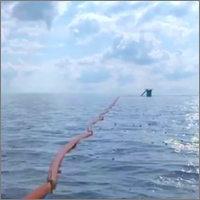NOC develops innovative sensor to to measure ocean acidification
A team of scientists and engineers from the National Oceanography Centre (NOC) is heading to the USA to take part in a high-profile international competition to develop pH sensors to measure changes in the acidity of the ocean. NOC is one of only two organisations representing the UK in the Wendy Schmidt Ocean Health XPRIZE, which is offering a total prize fund of (US)$2million for the development of accurate and affordable ocean pH sensors to improve our understanding of ocean acidification. The four-phase competition has attracted major players from the scientific community around the world and there are twenty-three organisations taking part. The NOC team has successfully passed Phase 1 and are travelling to California this month for Phase 2, which involves testing the sensor in a lab. NOC is well-renowned for developing world-leading oceanographic sensors and the pH sensor it has entered into the Wendy Schmidt Ocean Health XPRIZE competition is unique. Very small in size, it is based on a microfluidic design, which requires very small volumes of seawater to generate a reading. It is also being designed as an autonomous system able to operate on a number of oceanographic platforms and down to depths of several thousand ...
Read moreDetails






























































